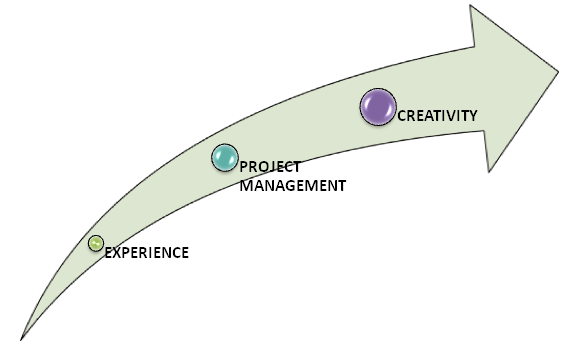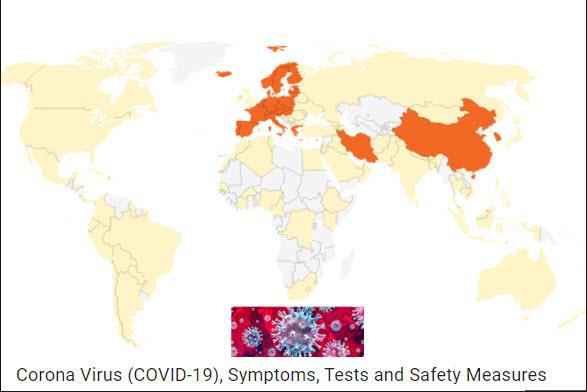Learn What It Takes To Make A Mark In The Field Of Clinical Research
Life on earth is indeed a very precious thing. Man has made innumerable progress in the world of medical science, but he is still not capable of creating another life, which is why saving life has always been man’s foremost endeavors. Naturally when you are associated with a profession that strives to save mankind, you command a different respect in the society. By life saviors we are not referring to doctors alone, instead we are talking about a group of people known as clinical research scientists.
Who are these people and what do they do?
Clinical scientists are people who are mainly instrumental behind the medicines that we consume. These people conduct research on diseases and the various conditions surrounding a particular ailment to understand its nature. Once they determine the nature of the disease, they conduct various researches to determine the accurate diagnosis of the problem and create a drug which can counter its negative effects.
The entire work can be broken down into three distinct parts:
Phase 1- The first phase is limited to 20-30 patients and typically tests the toxicity of the medicine. This phase is dedicated to determine the safety of the medicine.
Phase 2- Once phase 1 is successfully completed, in phase two researches is conducted to ensure whether a specific treatment is suitable for further research. The sample group even in the second phase is not more than 20 people.
Phase 3- Phase 3 is really grand, as the medicine is given to thousands of individuals suffering from the same ailment. This is done to test the result of the new medicine against the best possible method prevalent in the market.
How Do You Venture Into This Field Of Clinical Research?
Venturing into the world of Clinical research is not easy or rather we can say that it is indeed pretty hard. After all the responsibility of creating a life saving drug requires the best talents in the field. Clinical research like any other job has job several layers. Most new comers start as a Clinical research associate or (CRA).

In order to become a Clinical Research Associate you should meet the following criterion:
- A Masters degree in any field of biology, medicine or bio technology. Some companies even ask for a PhD degree for more senior positions.
- Most companies ask for a minimum experience of 2 years before hiring a CRA. However if you have an exceptional educational record, then securing a job straight out of college is not unusual.
- There are many research training programs available at various universities and colleges. Many such programs are also available online, which provides students with certification and specialized knowledge about the different dynamics of this career. However before you enroll in any such course consider the effectiveness of these programs, along with the time and cost involved.
- A student who aspires to become a Clinical research associate should have organizational skills. He should be proficient enough to pay attention to small details. The ability to keep a level head under extremely tense situations and display patience while communicating with different types of people is also very important for a CRA. Last but not the least dedication and a willingness to learn is often regarded as the hallmark trait of any clinical research associate.
Before you apply for a job as a CRA there are certain facts which you should bear in mind. Unless you have relevant experience over 2 years then you are not eligible for anything higher than an entry level associate. Read the job description carefully and make sure that you fit into the relevant criterion. The job of a CRA is not like any random job where you can apply in bulk. Once you get a job, explore different areas instead of sticking to one area of expertise. This would help you to get a better post in the future.
Find a course provider to learn Clinical Research
Java training | J2EE training | J2EE Jboss training | Apache JMeter trainingTake the next step towards your professional goals in Clinical Research
Don't hesitate to talk with our course advisor right now
Receive a call
Contact NowMake a call
+1-732-338-7323Enroll for the next batch
Clinical Research Training Course Program
- Sep 1 2025
- Online
Clinical Research Training Course Program
- Sep 2 2025
- Online
Clinical Research Training Course Program
- Sep 3 2025
- Online
Clinical Research Training Course Program
- Sep 4 2025
- Online
Clinical Research Training Course Program
- Sep 5 2025
- Online
Related blogs on Clinical Research to learn more

CDISC SDTM: Standardizing Clinical Data for Enhanced Research Insights
Learn the importance of CDISC SDTM standards in enhancing research insights by standardizing clinical data.

Exploring the Significance of Medical History in Healthcare
Discover the crucial role of medical history in healthcare, understanding how it informs diagnosis, treatment, and patient care, and its impact on the evolution of medicine.

Key Stages of a Typical Clinical Trial Process Flow
Clinical trials follow a well-defined process flow that is essential for conducting successful and ethical clinical research.

Understanding the Key Stages of a Typical Clinical Trial Process Flow
Discover the critical steps involved in each stage, ensuring a smooth and successful clinical trial process flow.

The Indispensable Role and Importance of Industry Regulations and Standards in Clinical Trials
we have discussed key function in clinical operations, clinical research organization, key function in data management and quality assurance.

Unveiling the Clinical Research Roadmap: A Comprehensive Guide
We have discussed the purpose of Clinical research processes, and what is clinical research process.

Corona Virus (COVID-19), Symptoms, Tests and Safety Measures
Corona Virus (COVID-19), Symptoms, Tests and Safety Measures. Learn the symptoms, tests to undergo, and safety measures to be taken to prevent the virus.

List of Best Clinical Research Training in Atlanta – CRC, CRA, MSCR Studies
We have collected a list of reputed institutes to those interested in pursuing a career in clinical and/or translational research. Pick from the list to have your dream come true career in medicine.

Healthcare Sector increasing the focus in Big Data and Technology
Here the role of technology business mergers and big data firms within the healthcare frontiers comes into play. The business mergers of technology, as well as the big data firms in the healthcare sector, highlights a trend viral within the clinical

7 Ethics for Clinical Researchers
Clinical trials conducted by the researchers involve a human volunteer who is willing to be subject to adhere new findings or a medical experiment. For that, a proper consent is acquired from the volunteer before conducting the trials.
Latest blogs on technology to explore

Understanding Artificial Intelligence: Hype, Reality, and the Road Ahead
Explore the reality of Artificial Intelligence (AI) — its impact, how it works, and its potential risks. Understand AI's benefits, challenges, and how to navigate its role in shaping industries and everyday life with expert training programs

How Much Do Healthcare Administrators Make?
Discover how much healthcare administrators make, the importance of healthcare, career opportunities, and potential job roles. Learn about salary ranges, career growth, and training programs with Sulekha to kickstart your healthcare administration jo

How to Gain the High-Income Skills Employers Are Looking For?
Discover top high-income skills like software development, data analysis, AI, and project management that employers seek. Learn key skills and growth opportunities to boost your career.

What Companies Expect from Product Managers in 2025: Skills, Tools, and Trends
Explore what companies expect from Product Managers in 2025, including essential skills, tools, certifications, and salary trends. Learn how to stay ahead in a rapidly evolving, tech-driven product management landscape.

Breaking Into AI Engineering: Skills, Salaries, and Demand in the US
Discover how to break into AI engineering with insights on essential skills, salary expectations, and rising demand in the US. Learn about career paths, certifications, and how to succeed in one of tech’s fastest-growing fields.

Cybersecurity Training: Powering Digital Defense
Explore top cybersecurity training programs in the USA to meet rising demand in digital defense. Learn about certifications, salaries, and career opportunities in this high-growth field.

Why Pursue Data Science Training?
Empower your career in a data-driven world. Learn why data science training is crucial for high-demand jobs, informed decisions, and staying ahead with essential skills.

What Does a Cybersecurity Analyst Do? 2025
Discover the vital role of a Cybersecurity Analyst in 2025, protecting organizations from evolving cyber threats through monitoring, threat assessment, and incident response. Learn about career paths, key skills, certifications, and why now is the be

Artificial intelligence in healthcare: Medical and Diagnosis field
Artificial intelligence in healthcare: Medical and Diagnosis field

iOS 18.5 Is Here: 7 Reasons You Should Update Right Now
In this blog, we shall discuss Apple releases iOS 18.5 with new features and bug fixes